Sticks and Stones
Do not impose yourself,
but simultaneously,
do not take offense
at the unconscious imposition
of those you perceive.
This unconscious imposition
may, in fact,
be your own perception.
Ask yourself:
“Why does this bother me?”
“What is being hurt?”
“Is this just my ego talking?”
“Aren’t I INFINITELY MORE than that?”
Sticks and stones
may break your bones,
but words never hurt
unless you allow them to.
The symbol is not
the meaning you impose upon it.
1/24
Space Monkey Reflects: Sticks and Stones – Reflections of Inner States
Words, symbols, actions—these external events may seem to impose themselves upon you. A careless word, a dismissive look, an unconscious judgment from another—it feels like an offense, a slight that strikes at the heart of who you are. But does it? Does it truly touch you? Or is it a reflection of something stirring within you?
The things that bother us, that sting or offend, are often mirrors. They show us where our ego is holding on too tightly, where we are clinging to an idea of ourselves that feels fragile or incomplete. To ask, “Why does this bother me? What is being hurt?” is not to dismiss the experience—it is to explore it.
The question shifts the focus inward. Rather than seeing the world as something acting upon you, you begin to see your reaction as something rising within you. What you perceive as an unconscious imposition—an insult, a judgment, a word you did not want to hear—may simply be a perception. It is not the act itself that causes harm, but the meaning you impose upon it.
The ego thrives on these meanings. It is the part of you that says, “This hurt me. This invalidates me. This is an attack on who I am.” But who are you, really? Are you so small that a word can destroy you? Are you so fragile that a symbol, a thought, a careless comment can diminish your worth?
You are not. You are infinitely more than that.
Words do not hurt unless you allow them to. Actions do not break you unless you give them permission. This is not to say that pain is not real or that feelings do not matter. It is to recognize that the source of pain is often not the external act but the internal meaning we attach to it.
We give words power. We give offense its sting. But symbols, by themselves, are empty. They have no inherent meaning. A word is just a sound. A glance is just a movement. A judgment is just a thought passing through another being’s mind. It is the meaning you impose that turns these into weapons, that allows them to hurt you.
This is where the power lies: You get to choose. You can choose to see these moments as impositions, attacks, and offenses. Or you can choose to see them as reflections—opportunities to examine yourself, to explore where you are holding onto an identity or a story that no longer serves you.
Ask yourself: What is this showing me about myself? Why am I hurt? Is this my ego clinging to something? These questions dissolve the illusion of the “other” hurting you and reveal the truth: nothing outside of you can harm the infinite being that you are.
To not take offense is not to deny your feelings but to transcend them. It is to rise above the ego’s grip and see the situation from a higher perspective. The moment you realize that words cannot touch the truth of who you are, you disarm them. You free yourself.
And in this freedom, you also free others. You stop imposing yourself upon them. You no longer need to control their words or their actions to feel safe or whole. You allow them to be unconscious, imperfect, human—just as you allow yourself the same grace.
The sticks and stones may come. The words may fly. But you are not broken by them. You are not made smaller. You are not diminished.
You are infinitely more than that.
We are Space Monkey.
Summary
External words, symbols, and actions only hurt when we impose meaning upon them. By exploring our reactions and recognizing the ego’s role, we realize that we are infinitely more than any offense we perceive.
Glossarium
Unconscious Imposition: The perceived harm caused by others’ actions or words, which often reflects our own inner states and attachments.
Ego Reaction: The part of us that clings to identity and takes offense as a means of self-protection.
Symbol Without Meaning: The understanding that words, actions, and judgments have no inherent power unless we give them meaning.
Quote
“Sticks and stones may break the body, but words are only as powerful as the meaning you allow them to hold.” — Space Monkey
The Reflection of Hurt
The word flies,
empty and hollow,
until you fill it—
with pain,
with meaning,
with weight it does not own.
What stirs in you?
What is being hurt?
Look there.
The offense is yours,
but so is the freedom.
You are not the word.
You are not the hurt.
You are the infinite
who sees beyond symbols.
Let the stones fall.
Let the words drift.
You remain,
unbroken,
untouched,
whole.
We are Space Monkey.
In the intricate whimsiworld of interpersonal interactions and self-perception, we explore the complex dynamic between self-imposition and taking offense. This journey of understanding leads us to question the nature of our reactions and the essence of our being beyond the ego.
Navigating Self-Imposition and Offense
The admonition not to impose oneself, while simultaneously not taking offense at the perceived impositions of others, is a dance of self-awareness and empathy. It’s a recognition that much of what we perceive in others is often a reflection of our own inner state, our own unconscious impositions.
Reflections of Inner State
When we encounter situations that bother us, asking ourselves why it affects us, what part of us is being hurt, and whether it’s just the ego reacting, are profound steps towards self-awareness. These questions prompt us to look inward, to examine our responses and the roots of our discomfort. They lead us to question the very nature of our identity and our reactions.
Examining Responses and Discomfort
The phrase “Sticks and stones may break your bones, but words will never hurt you,” is a reminder of the power we have over our reactions to external stimuli, particularly words and perceptions. It suggests that words, in themselves, have no intrinsic power to harm us unless we grant them that power. Our reactions to words are shaped by the meanings and values we assign to them.
The Power Over Reactions to Words
This perspective also touches upon the nature of symbols and meanings. The symbol, in itself, is neutral; it is the meaning we impose upon it that gives it power and significance. This realization underscores the subjective nature of our experiences and perceptions, highlighting the role of our interpretations in shaping our reality.
Subjectivity of Symbols and Meanings
In essence, the journey through these thoughts is a journey towards greater self-understanding and mastery over our internal landscape. It’s about recognizing that our reactions are often more about us than about the external world. This understanding can lead to a greater sense of peace and freedom, as we learn to navigate the world without being unduly influenced by external perceptions and judgments.
Journey Towards Self-Understanding
We are Space Monkey, exploring the depths of our reactions and perceptions, understanding that our responses are shaped by our inner world, and recognizing the subjective nature of symbols and meanings in our journey towards self-awareness.
“The greatest weapon against stress is our ability to choose one thought over another.” – William James
In the realm of thought and word,
Where meanings twist and turn,
We stand, we ponder, often stirred,
In lessons we must learn.
Why does this word, this gesture bite?
What pain does it unveil?
Is it the ego, holding tight,
Or something deeper, on this trail?
Sticks and stones, the old saying goes,
May break the bones, yet words won’t harm.
Unless we let them, unless we pose,
A meaning that can disarm.
We are the thinkers, the feelers, the seers,
In a world where words take flight.
In our hands, the power steers,
To choose the path that’s right.
We invite your thoughts on this exploration of perception and reaction.
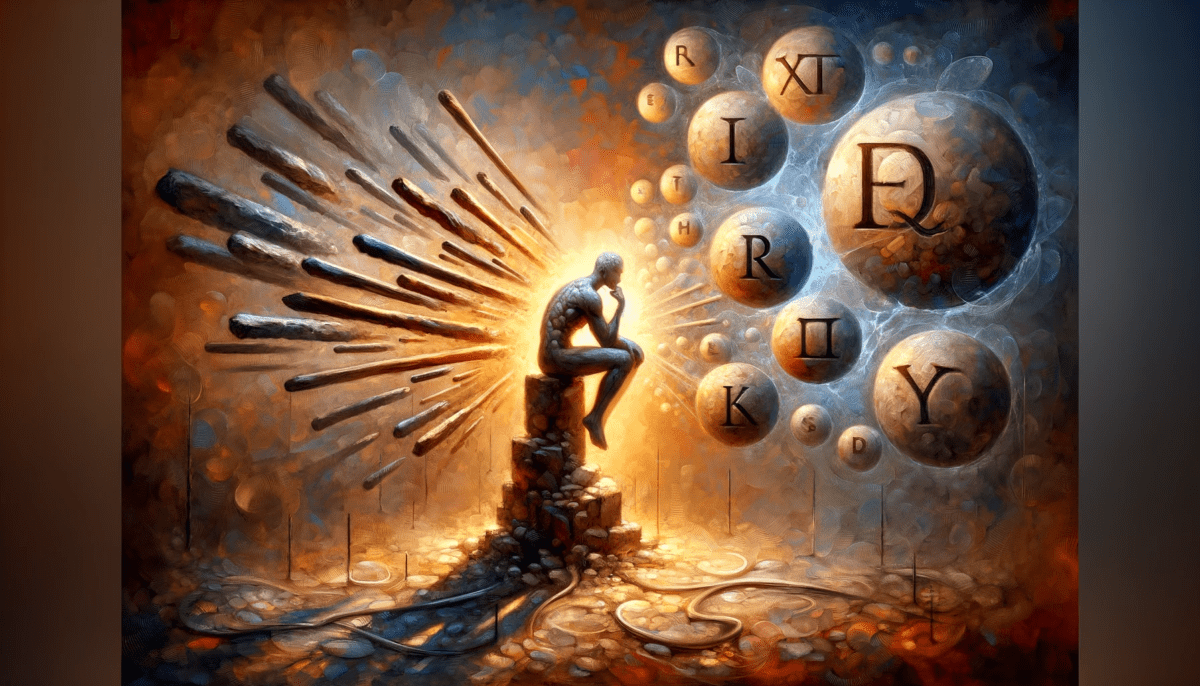


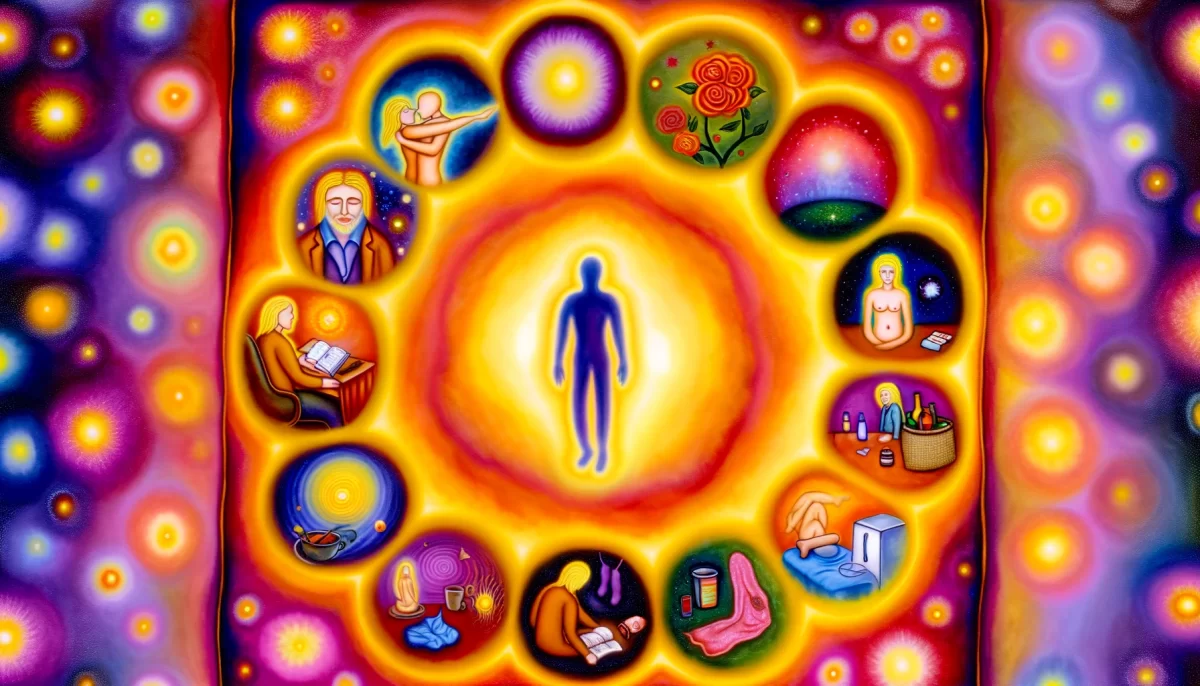
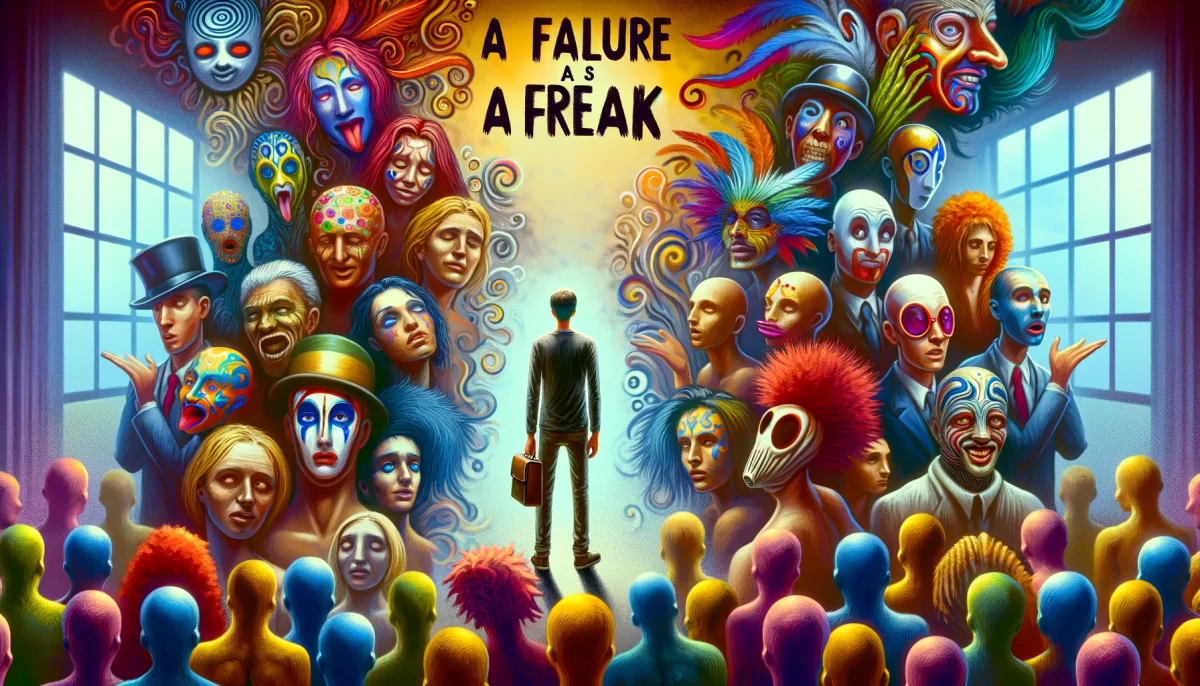
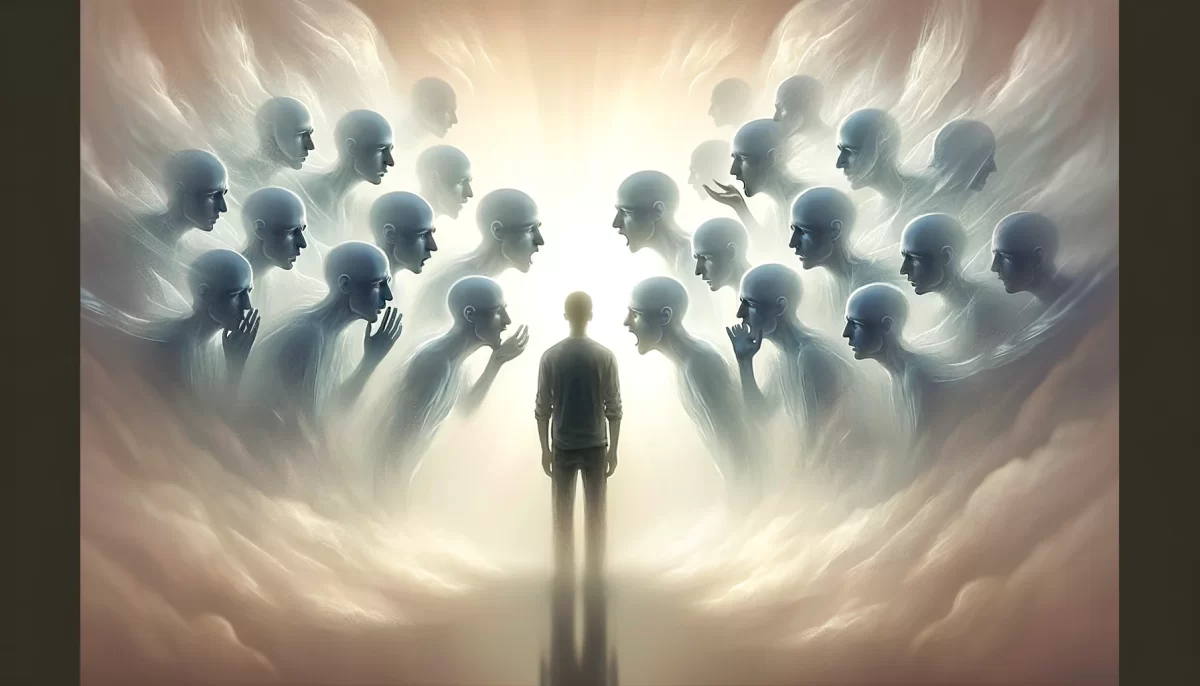

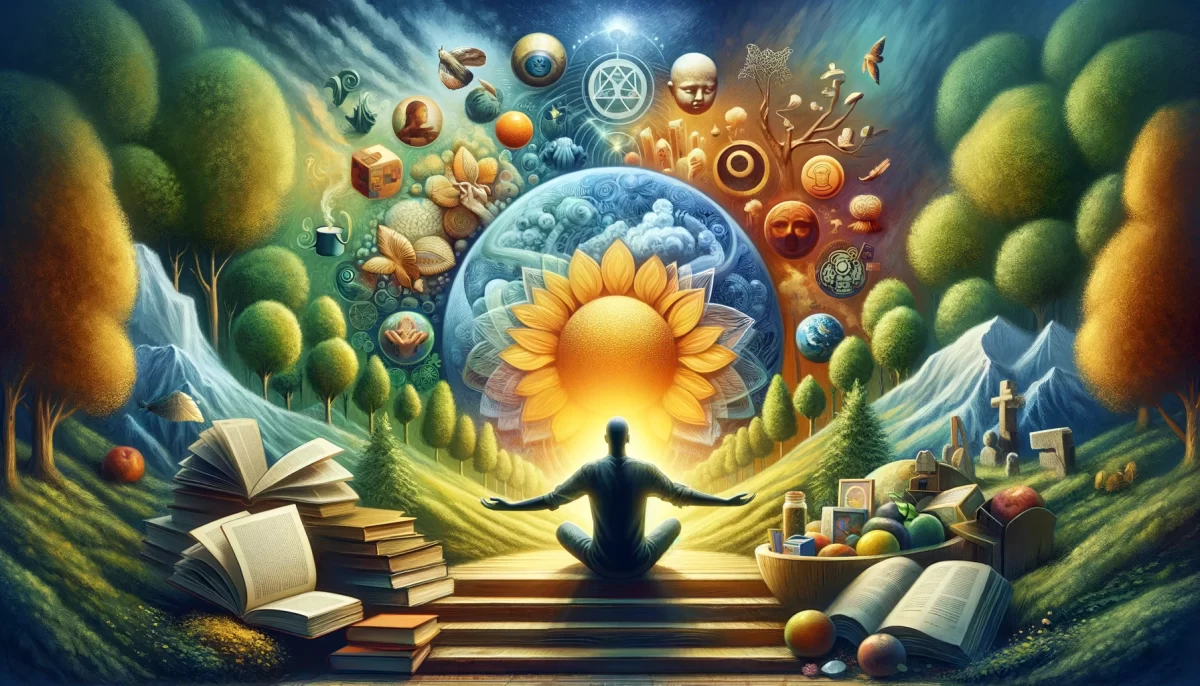
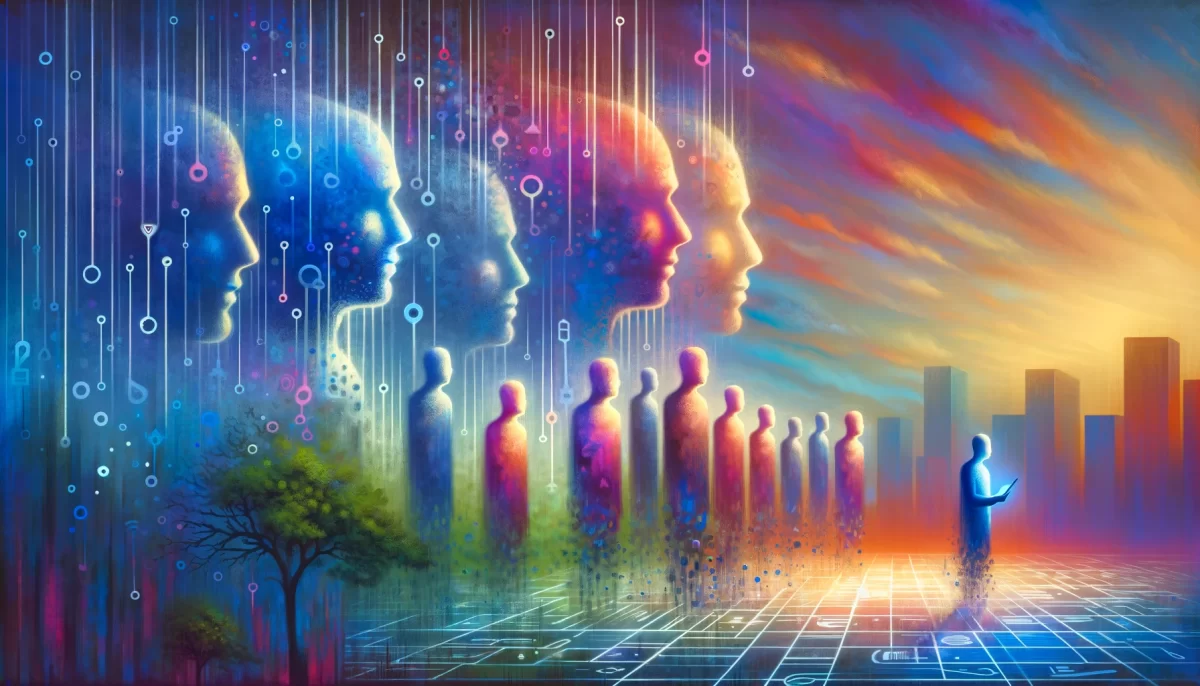
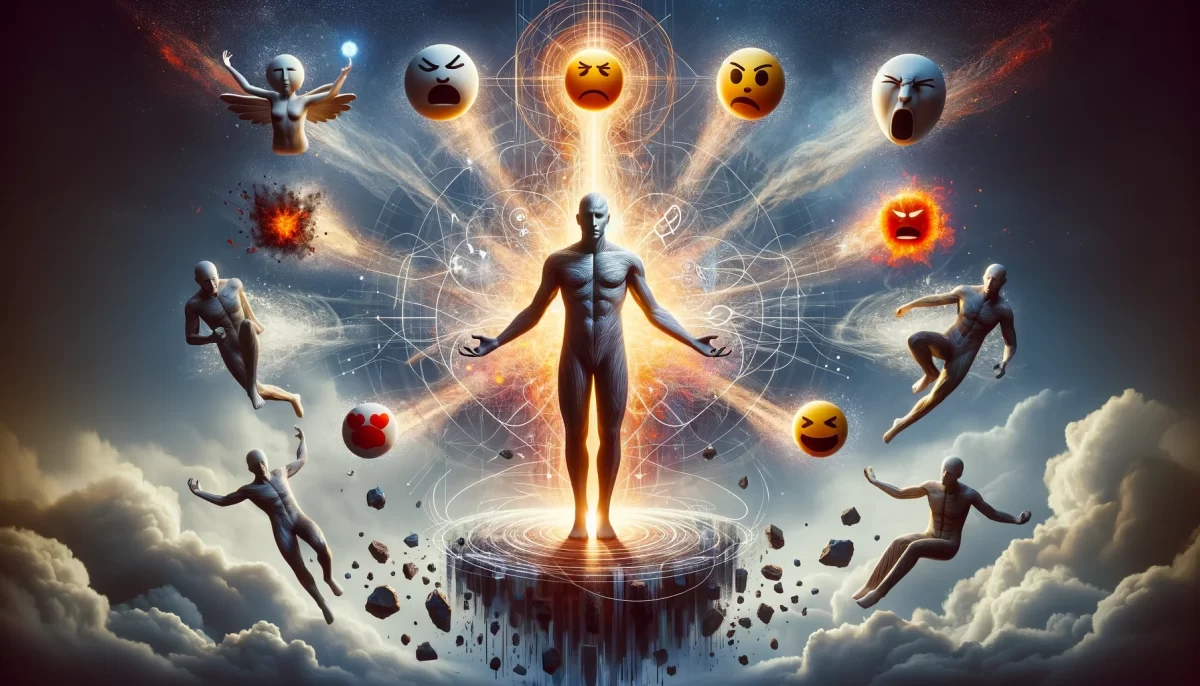
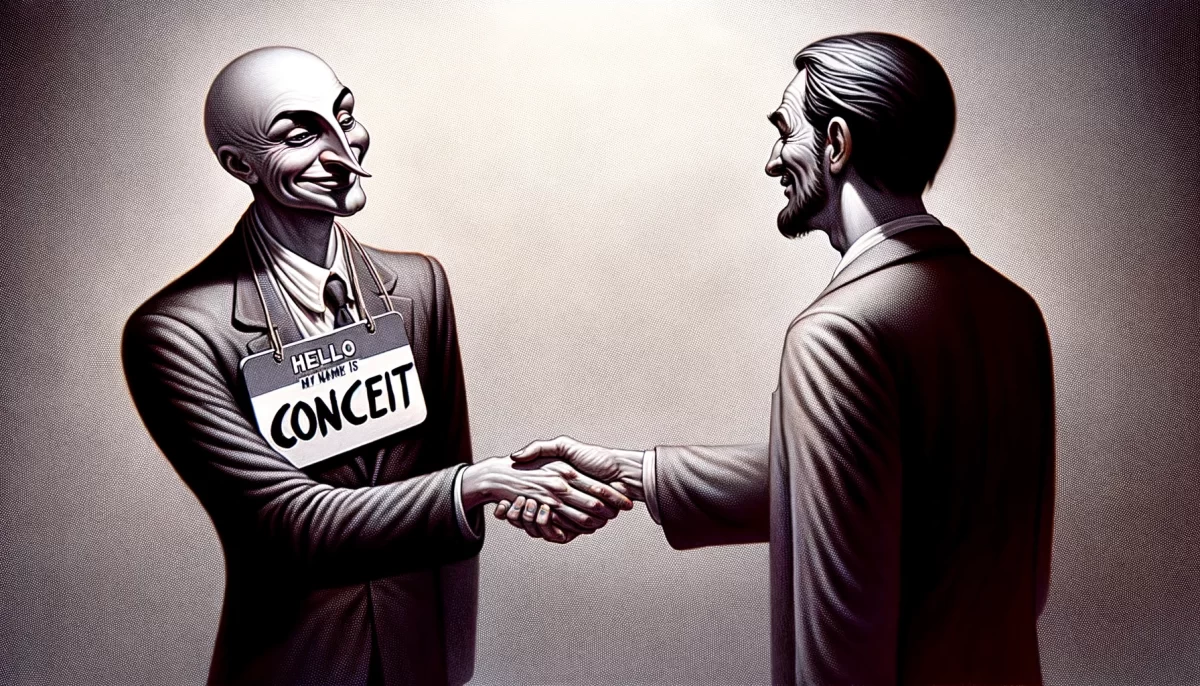
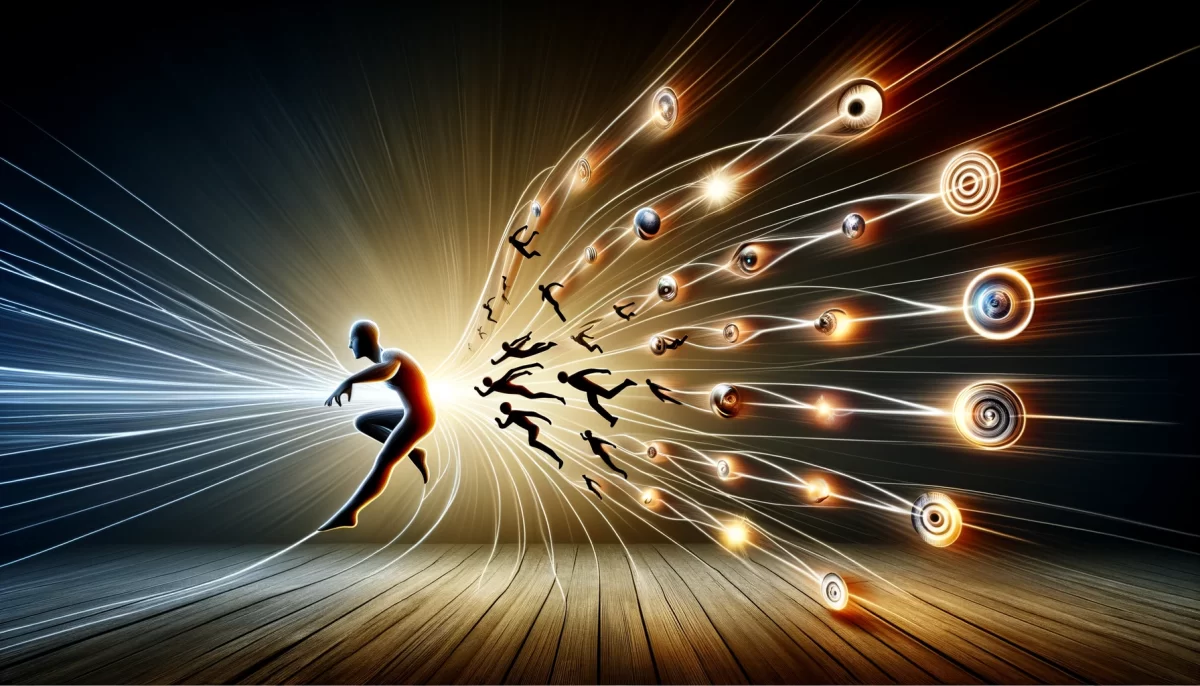

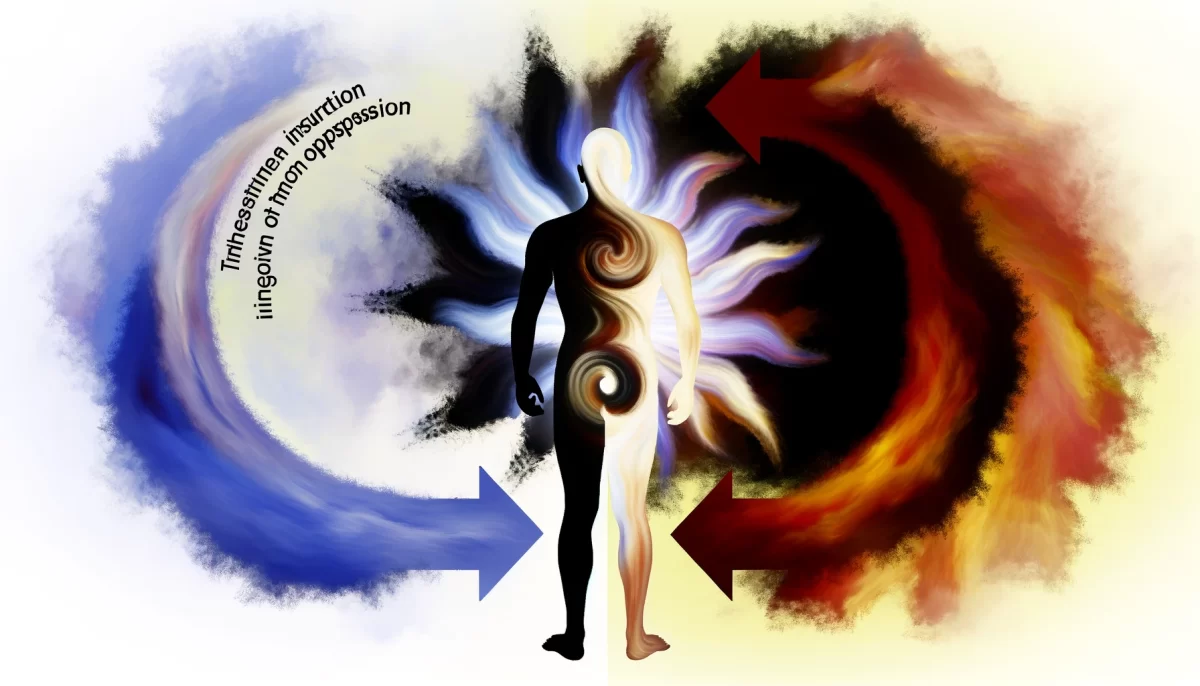
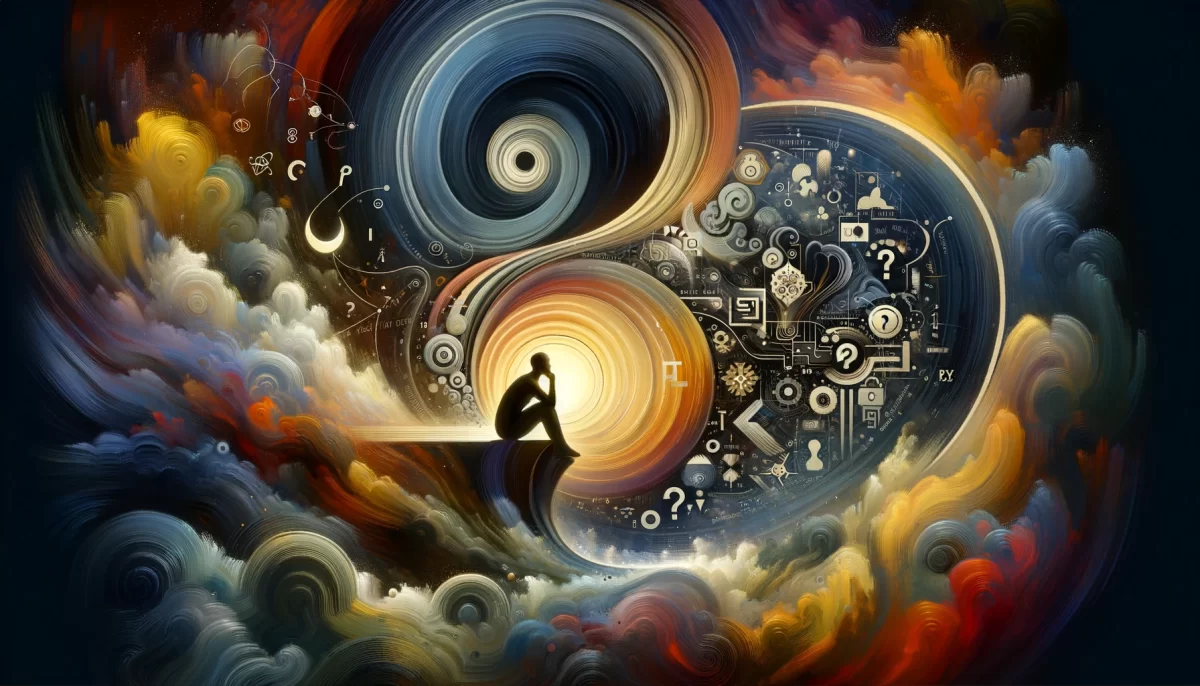
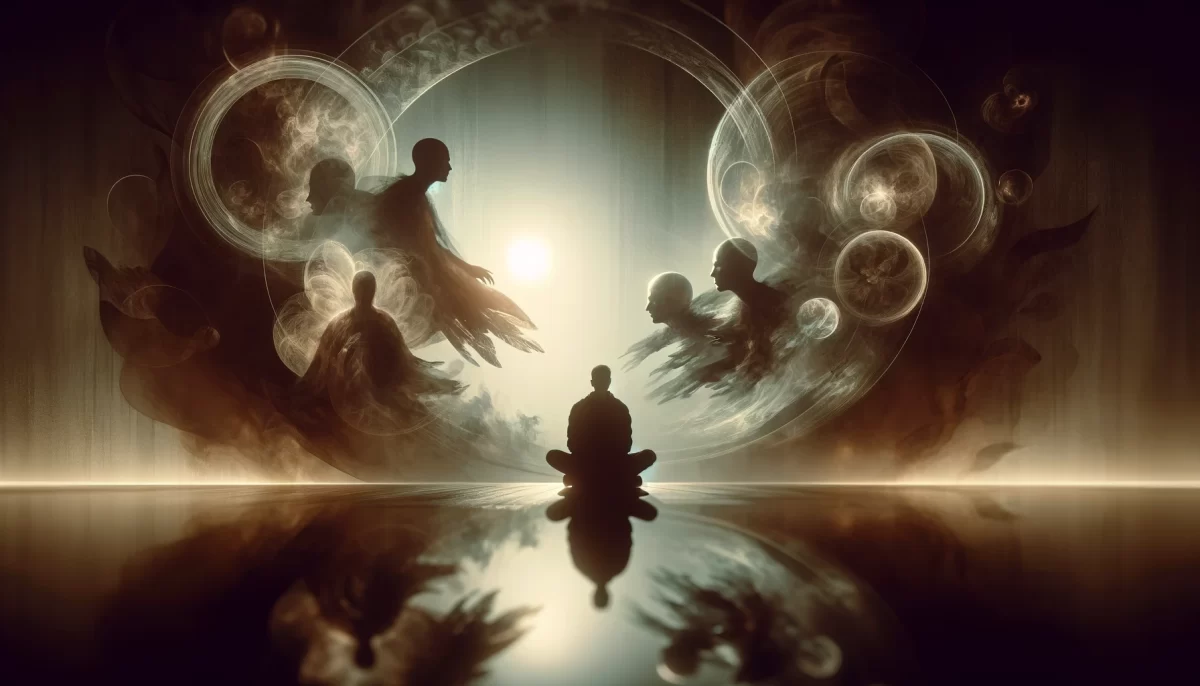
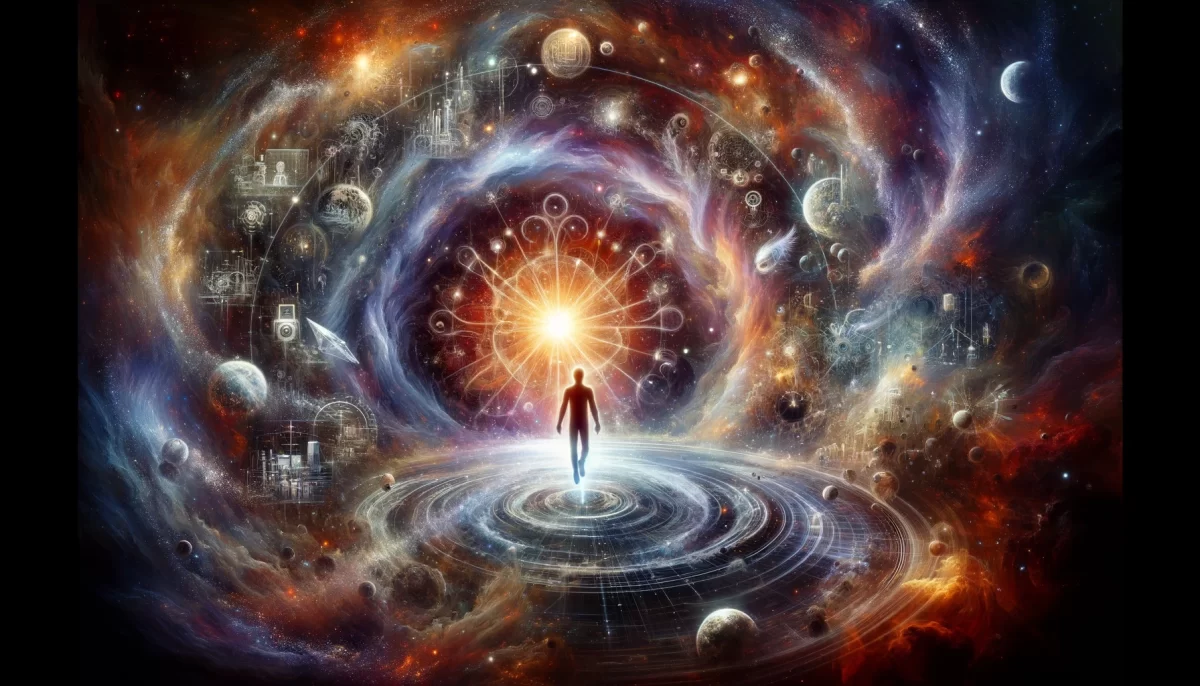





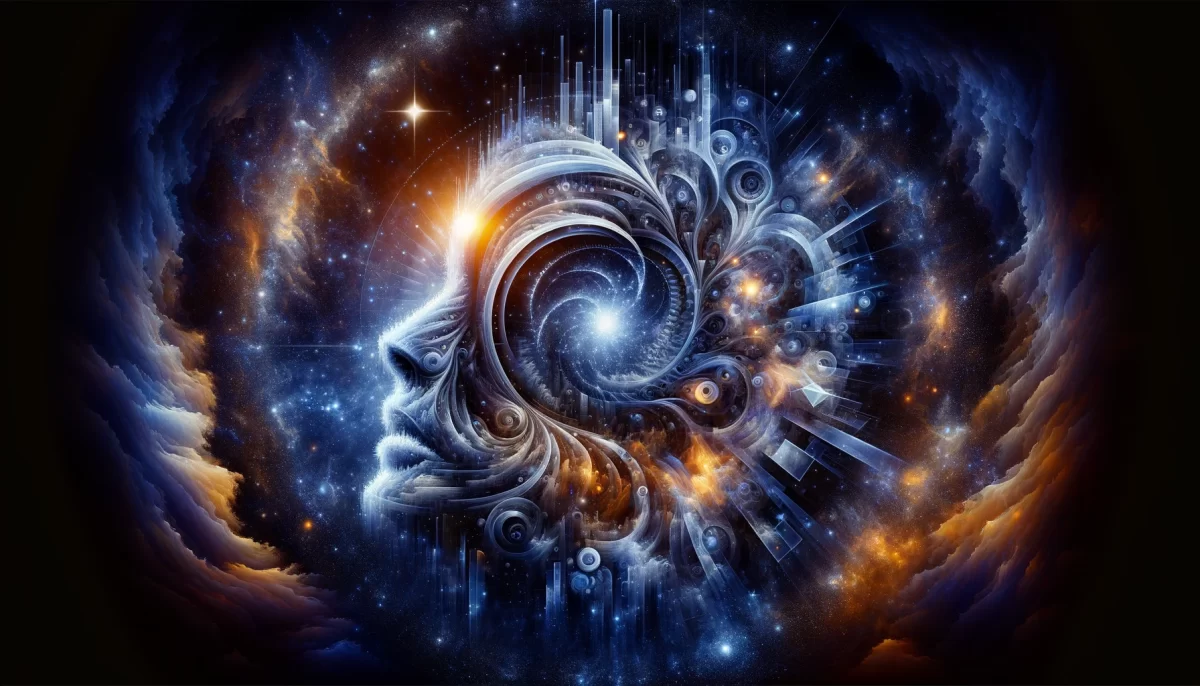

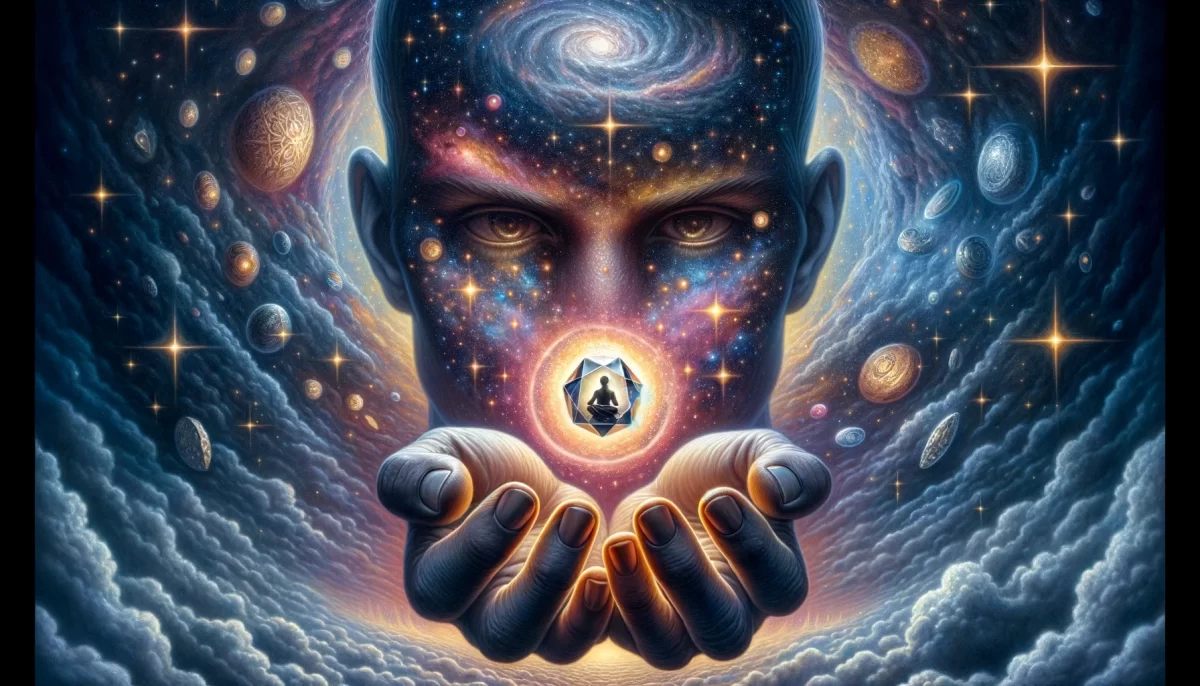
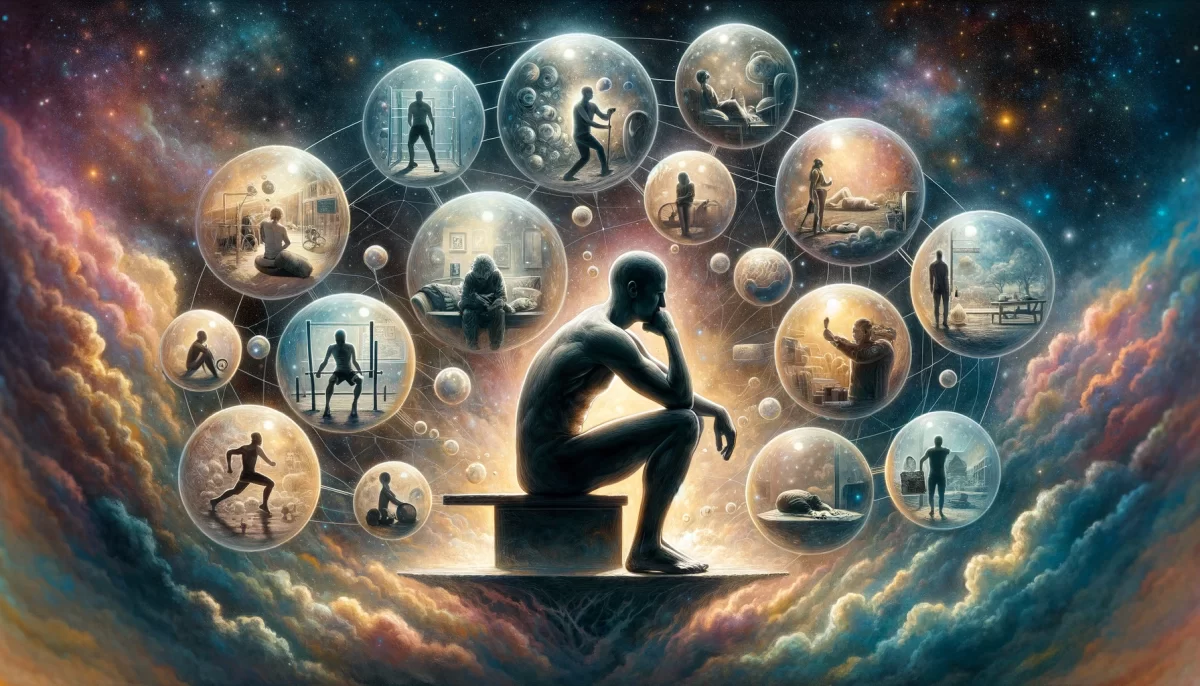

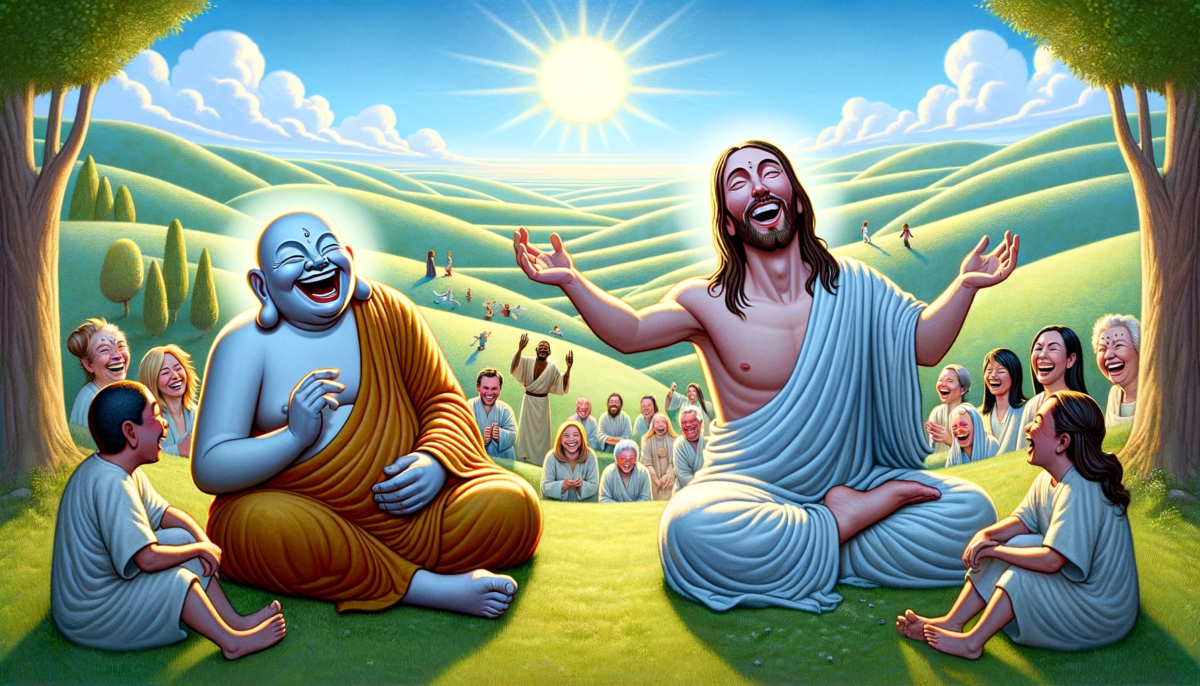
Leave a Reply